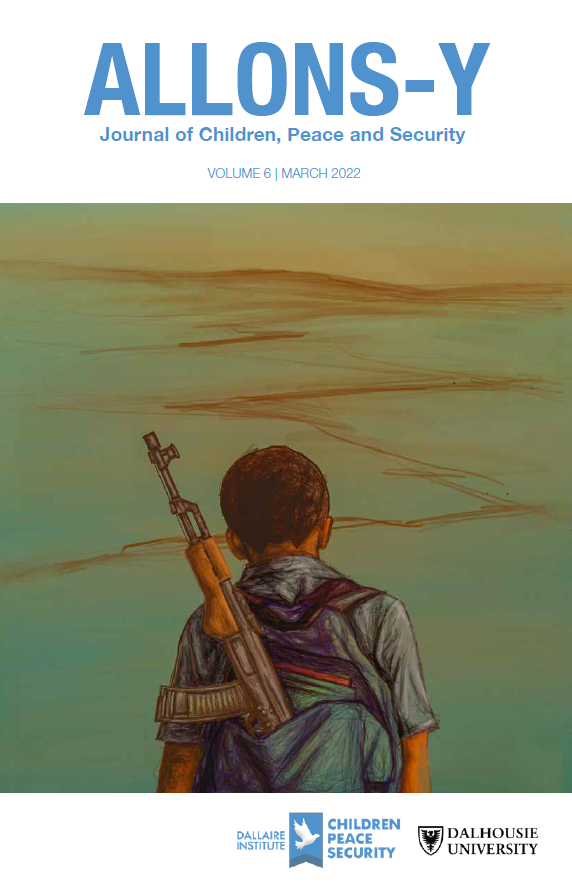Letter from the Editors
Abstract
This sixth volume of Allons-y: Journal of Children Peace and Security focuses on the implementation of the Vancouver Principles in light of the successes, lessons learned, and challenges of the past twenty-five years of the Children and Armed Conflict (CAAC) Agenda. The volume began its journey in 2021, which represented a number of important milestones for children, peace and security: the 25th anniversary of the establishment of the CAAC Agenda with General Assembly Resolution 51/77 (1996), the 20th anniversary of Security Council Resolution 1379 (2001) which first mandated that the Secretary-General publish a list of parties to conflict who recruited and used child soldiers, and 2021 was the International Year for the Elimination of Child Labour.
As multiple of the authors in this volume note, there have been great advancements in the recognition of the specific harms children face during armed conflict and in the international system to prevent and redress them over the past 25 years. These include the adoption of a specific treaty on children‘s involvement in armed conflict, the establishment of the Monitoring and Reporting Mechanism for grave violations of children‘s right, and the inclusion of child protection mandates in UN peacekeeping operations. States, the UN, and civil society now have multiple tools to aid in better protecting children, and particularly, in preventing their recruitment and use as soldiers, such as the Vancouver Principles, Safe Schools Declaration, and Paris Principles. This time has also witnessed expanded research into children‘s experiences during armed conflict and how to better protect them, from a range of disciplines from history to social work to international relations.
At the same time, the past twenty-five years have seen the emergence or return of conflict dynamics which further expose children to violence and make their protection even more difficult. The Russian invasion of Ukraine is the latest example of the disregard for children during war, while existing conflicts in Yemen, South Sudan, Mozambique, and elsewhere continue to involve children as both perpetrators and victims of violence. These include the challenges in effective multilateral responses by the UN due to great power politics and challenges to the international system, the intractability of longstanding civil conflicts that affect hundreds of millions of children, and changes in armed conflict such as the scope of violence by organized crime, the splintering of armed groups and use of terrorist tactics, and new developments in cyber warfare and autonomous weapons. Support for basic human rights and the resources required to address children‘s needs, are sorely lacking and not rising to meet the challenges of the current world. We hope these reflections on the roles of youth, the UN, civil society, and committed governments in advancing the CAAC agenda into the next quarter century can help foster new thinking, strategies, and relationships to raise children‘s place in the peace and security agenda and further the cause of peace globally.





